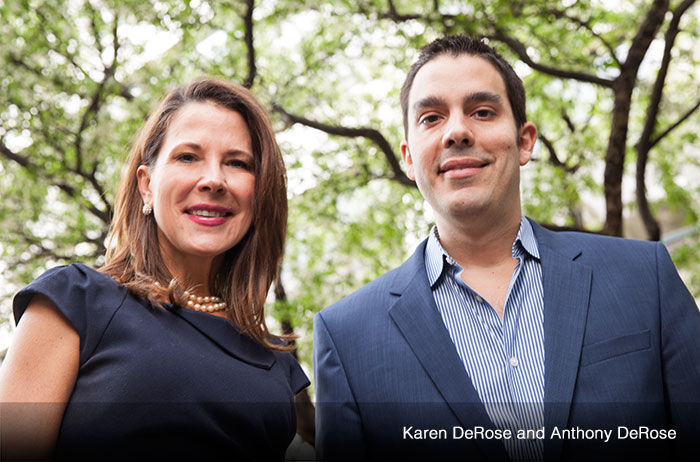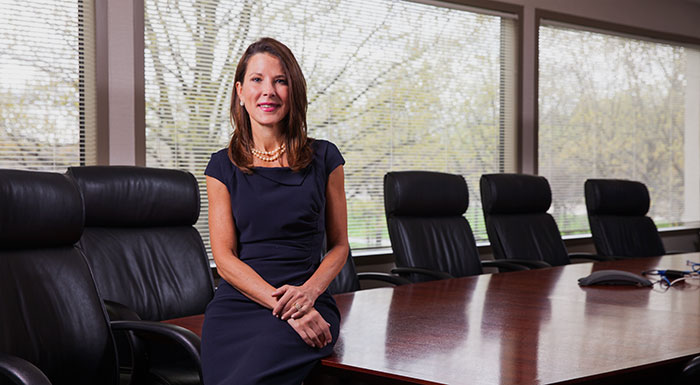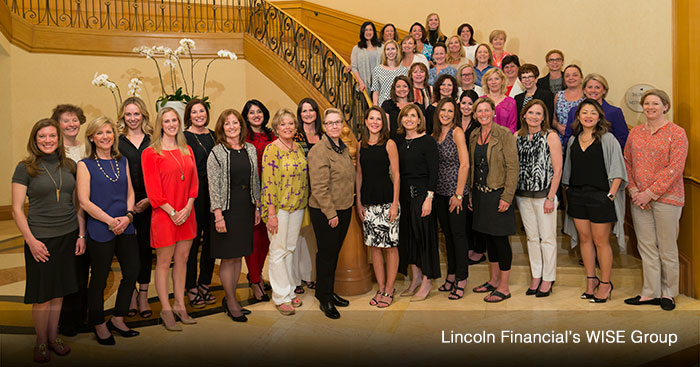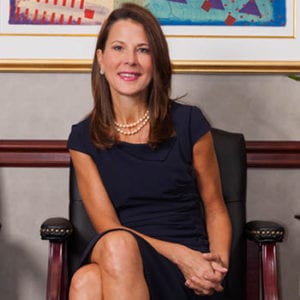Life happens. Plan for it.

DeRose Financial Planning Group • Lincoln Financial Advisors Corp.
Read full biography below
I have been in the business now for over 20 years, and we have a multi-generational practice. I think that is an important distinction, and I see our practice as providing family wealth advice. My son Anthony joined our firm a few years ago and plays a very important role as an associate planner. He has terrific qualifications and a strong educational background, holding an MBA, CPA, and a law degree. He not only brings a world of specialized knowledge, but is also integral to executing our multi-generational strategy.
We frequently work across three generations in a family and can handle just about every planning need for both business owners and individuals. My passion is listening to clients and translating their wants, needs, and values into a plan that builds and preserves their wealth over their lifetime. This hopefully leads to a long-term relationship, as we help clients achieve their goals at various life stages and plan for their legacy.

Essentially our process follows the CFP standard with some customizing that we have found of value. It has seven distinct steps and takes anywhere from four to eight weeks, depending on the level of complexity and coordinating a schedule with a client. It is also important to understand that we take a team approach to the planning process. We have an in-house planning department and access to Lincoln’s planning department, which includes legal and accounting review functions. We also use state-of-the-art software that does a wonderful job of integrating all of a client’s financial accounts. We will train clients on how to use that and make sure they are comfortable with the system.

Here is what I tell clients: “The focus is on you—what you are trying to accomplish individually and as a couple and family. I want to understand your feelings and past experiences with money, household finances, interactions with financial institutions, investing, and how you view the world around you. I want to help you establish a plan and then succeed at what you are trying to accomplish today, 10 and 20 years from now, and after you leave this earth.”
For most clients, there will be a middle ground, both in terms of their outlook on risk and a well-diversified approach to investment planning. Equity investments, we all have to acknowledge, have historically been the best place to achieve adequate returns over longer time frames. That is especially true in this low-interest-rate environment. The key is finding a way to manage risk in the markets as much as possible for clients. Risk needs to be carefully controlled and monitored—first through the asset-allocation process and then via different investment strategies.

Roughly 80% of our client equity money is actively managed, and we utilize several different managers and platforms for that. One key shared attribute of all of our managers is the strong element of risk management in their strategies. In addition, I consider three key things in selecting managers: What is their investment philosophy? How long have they been managing money? What is their track record of performance, especially in down markets?
That is where I think our process of exploring a client’s relationship with money is extremely valuable. We will work with these younger clients to thoroughly address their anxieties. We may be able to help them see how investments can be managed with an emphasis on risk mitigation—where one does not have to feel totally at the mercy of the roller-coaster nature of the markets. I find that making that personal connection and then providing solutions is one of the most gratifying aspects of our business.
 “I grew up understanding the importance of financial planning,” Karen DeRose says, referencing her father’s insurance practice. He taught her the importance of “why you plan and personal service,” she adds. Ms. DeRose has coupled this with a commitment to continuous learning, earning the Certified Financial Planner (CFP) and Chartered Retirement Planning Counselor (CRPC) certifications after receiving her bachelor’s degree in business from Barat College.
“I grew up understanding the importance of financial planning,” Karen DeRose says, referencing her father’s insurance practice. He taught her the importance of “why you plan and personal service,” she adds. Ms. DeRose has coupled this with a commitment to continuous learning, earning the Certified Financial Planner (CFP) and Chartered Retirement Planning Counselor (CRPC) certifications after receiving her bachelor’s degree in business from Barat College.
In 1996, Ms. DeRose founded DeRose Financial Planning Group to help her clients take their financial planning to the next level. “My vision is to put my clients’ lives into their financial plans,” she says. “That’s why we believe, ‘Life happens. Plan for it!’”
Ms. DeRose is the past chair of The Resource Group, composed of the top 200 financial advisors at Lincoln Financial Advisors. She is currently chair of the WISE Group (Women Inspiring, Supporting, and Educating), an organization for women advisors within the Lincoln Financial Network. Ms. DeRose says she “believes in promoting business development by adding value to client relationships through membership in the Executive Guild and BNI Wildfire Chapter networking groups.” She is also a Collaborative Law Fellow with the Collaborative Law Institute of Illinois, where she provides financial expertise to couples during their divorce process, and is an active member of the Financial Planning Association of Chicago.
Ms. DeRose holds the FINRA Series 6, 7, 63, and 66 registrations and is licensed to provide health and life insurance in several states. She has appeared on NBC 5 Chicago and was listed in Chicago Magazine as a 5 Star Wealth Advisor from 2010 to 2015. In addition, she earned the prestigious Women’s Choice Award as a top female advisor in 2014 and 2015. Ms. DeRose also was recently awarded the prestigious 20 Women to Watch award in 2015 by Investment News. She has been notably featured in the book “Financial Services: Women at the Top.”
Ms. DeRose lives in Deerfield, Illinois, and is celebrating 34 years of marriage with her husband. She says she and her husband are “extremely proud of our two adult sons, one entering medical school and the other an associate planner at our firm.”
Disclosure: Karen L. DeRose is a registered representative of Lincoln Financial Advisors Corp. Securities and advisory services offered through Lincoln Financial Advisors Corp., a broker/dealer (Member SIPC) and registered investment advisor. Insurance offered through Lincoln affiliates and other fine companies. DeRose Financial Planning Group is not affiliated with Lincoln Financial Advisors Corporation. CRN-4905199-081622.
Post-publication note: As of 2024, Ms. DeRose is registered with Osaic FA Inc.
Photography by Brett Kramer

